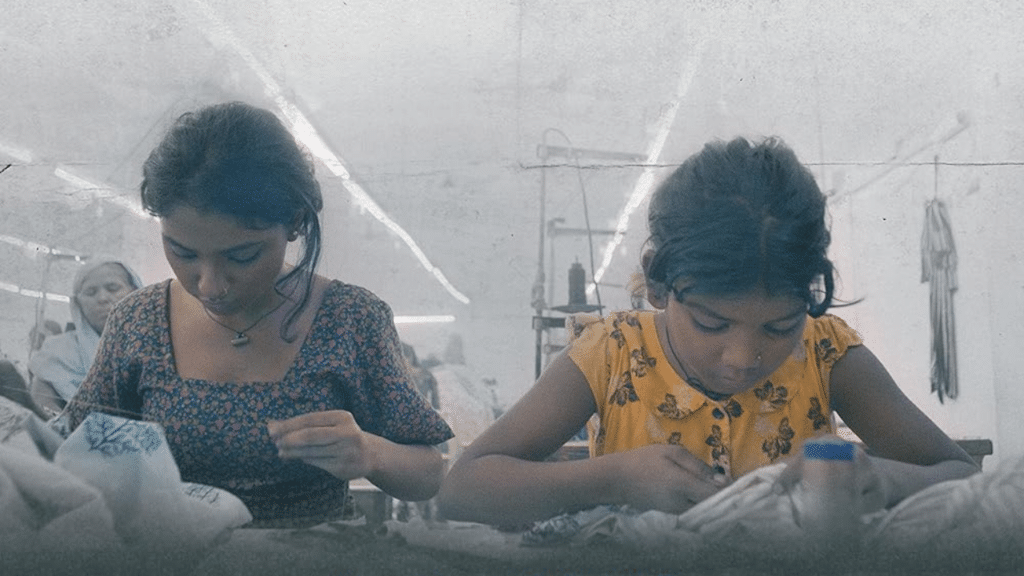The Heart-wrenching Reality of Poverty: Anuja Will Change the Way You See Opportunity
In a world where every opportunity could be the one to change a life, Anuja presents a stark and emotional portrayal of the struggles that hold one back from reaching those opportunities. Directed by Adam J. Graves, this Oscar-nominated short film highlights the complex decisions faced by a young girl, Anuja, as she navigates the harsh realities of poverty. Age Rating: PG | Language: Malayalam – A film that will strike a chord with viewers of all ages.
Plot Overview: A Life-Changing Decision
Anuja (played by Sajda Pathan) is a fourteen-year-old girl living in a slum, working at a local sewing factory. Her life takes a turn when a teacher, Mr. Mishra (Gulshan Walia), sees potential in her and urges her to sit for an important exam, offering her a chance for a better future. However, Anuja’s sister, Palak (Ananya Shanbhag), is saving for her own marriage, and Anuja finds herself at a crossroads.
To sit for the exam, Anuja needs Rs. 400, a sum that could either change her life or leave her sister in a precarious situation. On the other hand, her boss, Mr. Verma (Nagesh Bhonsle), offers her a job in his office, showcasing her arithmetic skills. What will she choose? The potential to change her life, or the sacrifice to support her sister’s future? The film challenges the notion that mere opportunity is enough to break free from poverty.
The Struggle Between Morality and Survival
The heart of Anuja lies in its exploration of morality in a world where survival often trumps ethical choices. Anuja, aware of the limited choices before her, is forced to make a decision that questions the very fabric of morality. The film also subtly touches on the practice of stealing as a survival tactic, as Palak is seen stealing leftover cloth from the factory, questioning whether it’s truly wrong when survival is at stake.
The film’s social commentary on exploitation, class, and gender roles in a marginalized society adds layers to the plot, making it not just a personal story but a critique of larger social issues.
The Power of Cinematic Storytelling
Adam J. Graves’ direction and the poignant performances by the cast make Anuja an emotionally charged experience. The visuals—especially the montage where Palak’s bleeding finger contrasts with a bucket of water—are stunning and give the film an added dimension of artistry. The subtle yet powerful imagery of Anuja standing outside the factory, torn between her dreams and her family’s needs, makes for an unforgettable climax.
The open-ended conclusion allows for interpretation, leaving viewers questioning whether Anuja chooses herself or sacrifices her future for the sake of her sister. It’s a painful, but necessary, examination of the realities faced by many who live in poverty.
What Works
- Strong, evocative performances by the cast, particularly Sajda Pathan as Anuja.
- A unique portrayal of poverty and the difficult choices it forces individuals to make.
- Powerful visual sequences that enhance the emotional weight of the film.
- An open-ended climax that leaves room for interpretation.
What Could Have Worked Better
- While the film offers a powerful message, some viewers may find its sympathetic gaze on poverty to be lacking in empathy.
- The moral dilemmas presented in the film could have been explored further to create more depth in Anuja’s decision-making process.
Final Verdict: 3/5 Stars
Anuja is a compelling short film that doesn’t just tell a story but forces viewers to reconsider the role of opportunity in an unequal world. The film’s raw depiction of poverty and the emotional conflict of the protagonist is a journey that will stay with you long after the credits roll. Available for streaming on Netflix, this is a must-watch for those who appreciate thought-provoking cinema that challenges societal norms.

